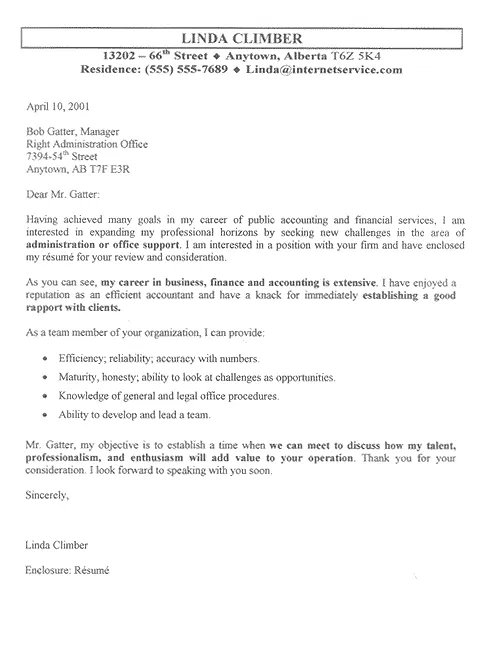Cover Letter for Accountants Why is it Important
In the competitive field of accounting, a well-crafted cover letter is more than just a formality it’s your first opportunity to make a lasting impression. Unlike a resume, which provides a factual overview of your qualifications, a cover letter allows you to showcase your personality, enthusiasm, and genuine interest in the specific role and company. It provides a space to explain why you are the perfect fit, connecting your skills and experience with the employer’s needs. A strong cover letter can significantly increase your chances of getting an interview, setting the stage for a successful job application and career progression in accounting.
Highlighting Your Skills and Experience
Your cover letter should serve as a spotlight, illuminating your key skills and experiences that align with the job requirements. Avoid simply restating your resume; instead, elaborate on your accomplishments, providing concrete examples of how you’ve utilized your skills to achieve positive outcomes in previous roles. This is your chance to go beyond the bullet points and tell a story of your professional journey, demonstrating your value proposition to potential employers. The goal is to capture the reader’s attention and compel them to learn more about you, the right candidate for the job.
Quantifiable Achievements
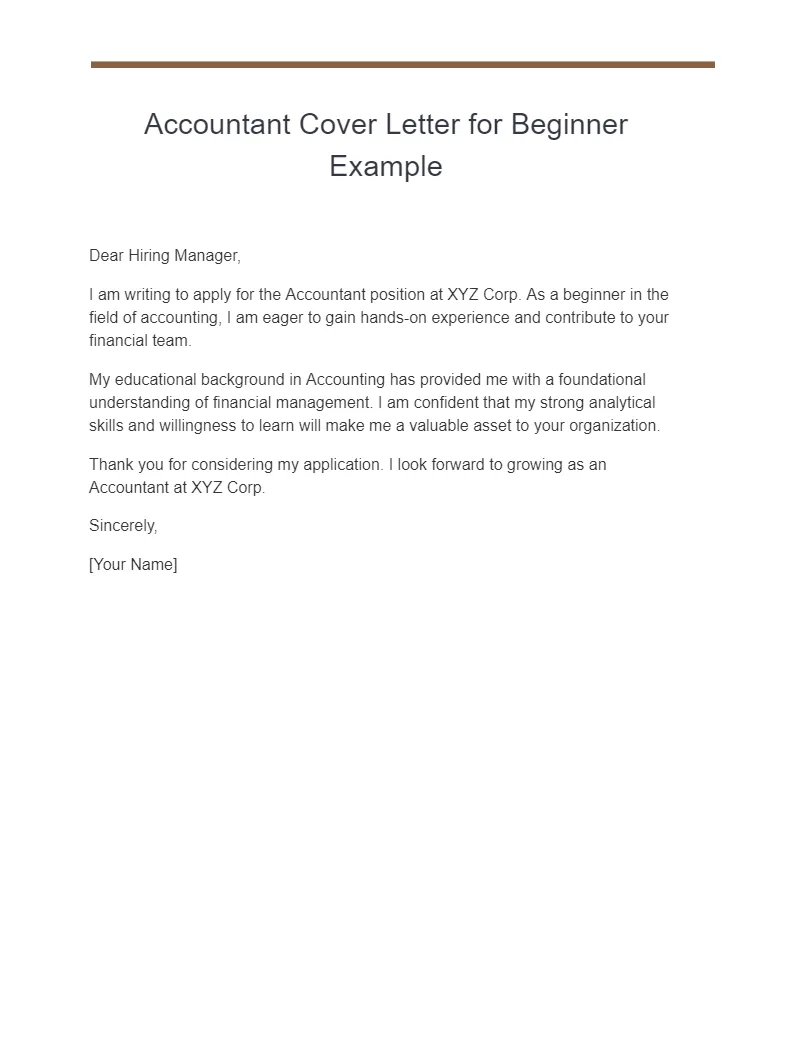
One of the most effective ways to demonstrate your capabilities is by providing quantifiable achievements. This means using numbers, percentages, and specific data points to illustrate the impact of your work. For example, instead of saying ‘Improved efficiency,’ you could say ‘Streamlined the month-end closing process, reducing the time required by 15%.’ This level of detail provides concrete evidence of your abilities and shows potential employers the tangible results you can deliver. When possible, always back up your claims with measurable results, such as cost savings, increased revenue, or process improvements.
Technical Skills
In the accounting field, technical skills are paramount. Be sure to highlight your proficiency in relevant software such as QuickBooks, SAP, or Xero, as well as your expertise in areas like financial reporting, budgeting, and tax preparation. Tailor your skills section to match the specific requirements of the job description, emphasizing the technologies and processes that the employer values. Mention any certifications or licenses you hold, such as a CPA or CMA, to further demonstrate your professional qualifications and commitment to the field. This helps to show the employer that you have the knowledge and experience to excel in the role.
Soft Skills
While technical skills are essential, don’t overlook the importance of soft skills. These interpersonal and communication skills are crucial for success in any role, especially in accounting. Highlight your abilities to work effectively in teams, manage time, communicate clearly, and solve problems. Provide examples of how you’ve used these skills to overcome challenges or achieve goals in previous roles. For example, you could describe a time when you successfully reconciled a complex account, demonstrating your attention to detail and problem-solving abilities. Showing that you can contribute both technically and interpersonally will showcase your fit for the job.
Tailoring Your Cover Letter
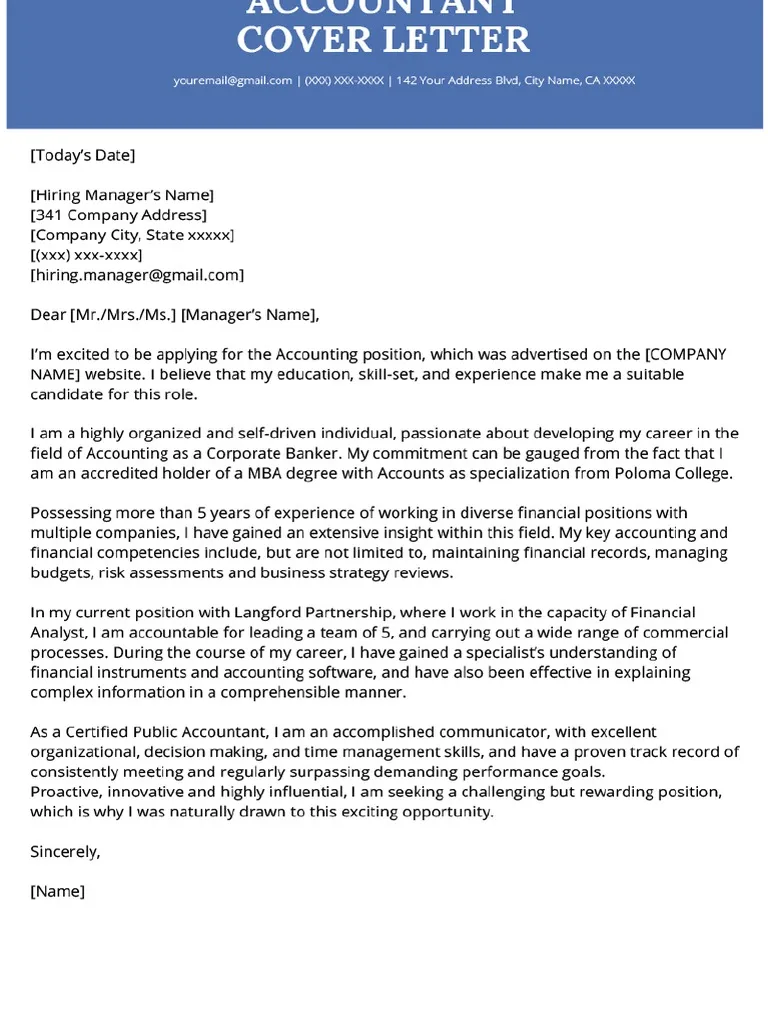
A generic cover letter is unlikely to make a strong impression. Tailoring your letter to each specific job and company is essential to show that you’ve done your research and are genuinely interested in the opportunity. This means carefully reviewing the job description and identifying the key requirements and qualifications the employer is seeking. Then, you can customize your letter to address these specific needs, highlighting the relevant skills and experiences you possess. This demonstrates that you’re not just sending out mass applications, but are actively seeking the right job for you.
Researching the Company
Before you start writing, invest time in researching the company. Visit their website, read recent news articles, and explore their social media profiles to learn about their mission, values, and recent developments. This will give you valuable insights that you can incorporate into your cover letter, demonstrating your knowledge and interest. Mentioning specific projects, initiatives, or company achievements that resonate with you will make your letter stand out and show that you’ve taken the time to understand their business and values. Doing your homework pays dividends.
Customizing Your Letter
Once you’ve researched the company, customize your cover letter to align with their specific needs and values. Address the hiring manager by name if possible and demonstrate your understanding of their business and industry. Highlight the skills and experiences that are most relevant to the job description and explain how you can contribute to their success. Use keywords from the job posting throughout your letter, but be sure to do so naturally. Showing that you understand their needs will get you noticed.
Formatting and Structure
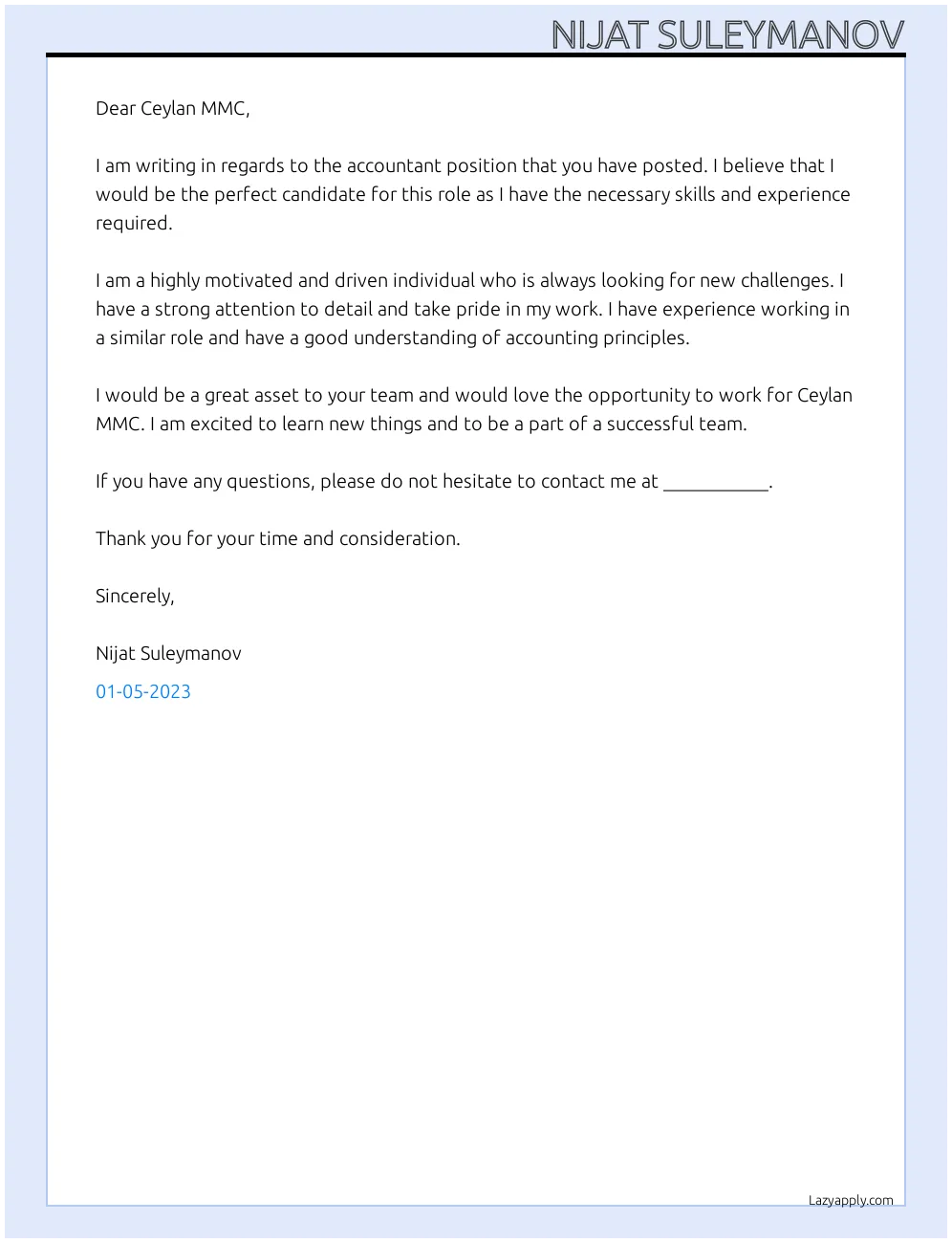
A well-formatted and structured cover letter is easy to read and makes a professional impression. Use a clear and concise writing style, with a professional font and font size (e.g., Times New Roman, 12pt). Divide your letter into logical sections, including an introduction, body paragraphs, and a conclusion. Keep your paragraphs concise, using bullet points and white space to break up large blocks of text. Proofread carefully to ensure that your letter is free of grammatical errors and typos. It’s crucial for the letter to be easy to read and not overwhelming.
Contact Information and Salutation
Begin your cover letter with your contact information, including your name, address, phone number, and email address. Then, address the hiring manager by name if you can find it. If you don’t know the name, use a professional salutation like ‘Dear Hiring Manager.’ Avoid generic greetings like ‘To Whom It May Concern,’ which can make your letter seem impersonal. Always ensure that your contact information is accurate and up-to-date, so potential employers can reach you easily. A professional salutation shows you care about the details.
Body Paragraphs
The body of your cover letter should be the meat of your message. Start with a strong opening paragraph that grabs the reader’s attention and states your purpose for writing. In the following paragraphs, highlight your relevant skills and experiences, providing specific examples to support your claims. Explain why you are interested in the specific role and company, and how your qualifications align with their needs. Show that you are enthusiastic, knowledgeable, and a good fit for their culture. Make sure your letter is easy to follow.
Closing and Call to Action
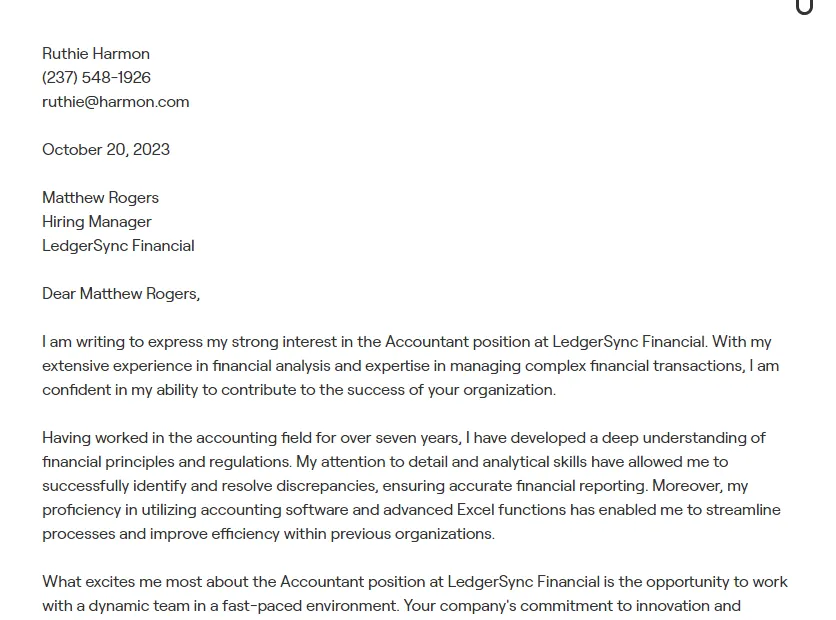
In your closing paragraph, summarize your key qualifications and reiterate your interest in the position. Include a clear call to action, such as requesting an interview or expressing your eagerness to discuss your qualifications further. Thank the reader for their time and consideration and provide your contact information again. A strong closing reinforces your message and encourages the employer to take the next step, leading to the possibility of getting hired.
Proofreading and Editing
Before submitting your cover letter, proofread and edit it carefully to ensure that it’s free of errors. Check for any grammatical mistakes, typos, and inconsistencies. Ask a friend, family member, or career counselor to review your letter for clarity and accuracy. A polished and error-free cover letter demonstrates professionalism and attention to detail, reflecting positively on your application. It helps a lot to have an extra set of eyes.
Common Mistakes to Avoid
There are several common mistakes to avoid when writing an accountant cover letter. Avoid generic cover letters, as these will be easily dismissed. Do not simply restate your resume; expand on your accomplishments and show your personality. Do not include irrelevant information or skills that are not directly related to the job. Always be truthful and accurate, and avoid exaggerating or making false claims. By avoiding these mistakes, you can create a cover letter that stands out and increases your chances of getting hired.
In conclusion, a well-written cover letter is an essential tool for accountants seeking employment. By following these guidelines, you can create a cover letter that showcases your skills, experience, and enthusiasm, ultimately increasing your chances of landing your dream job. Remember to tailor your letter to each specific opportunity, and always proofread carefully before submitting. Good luck with your job search!
